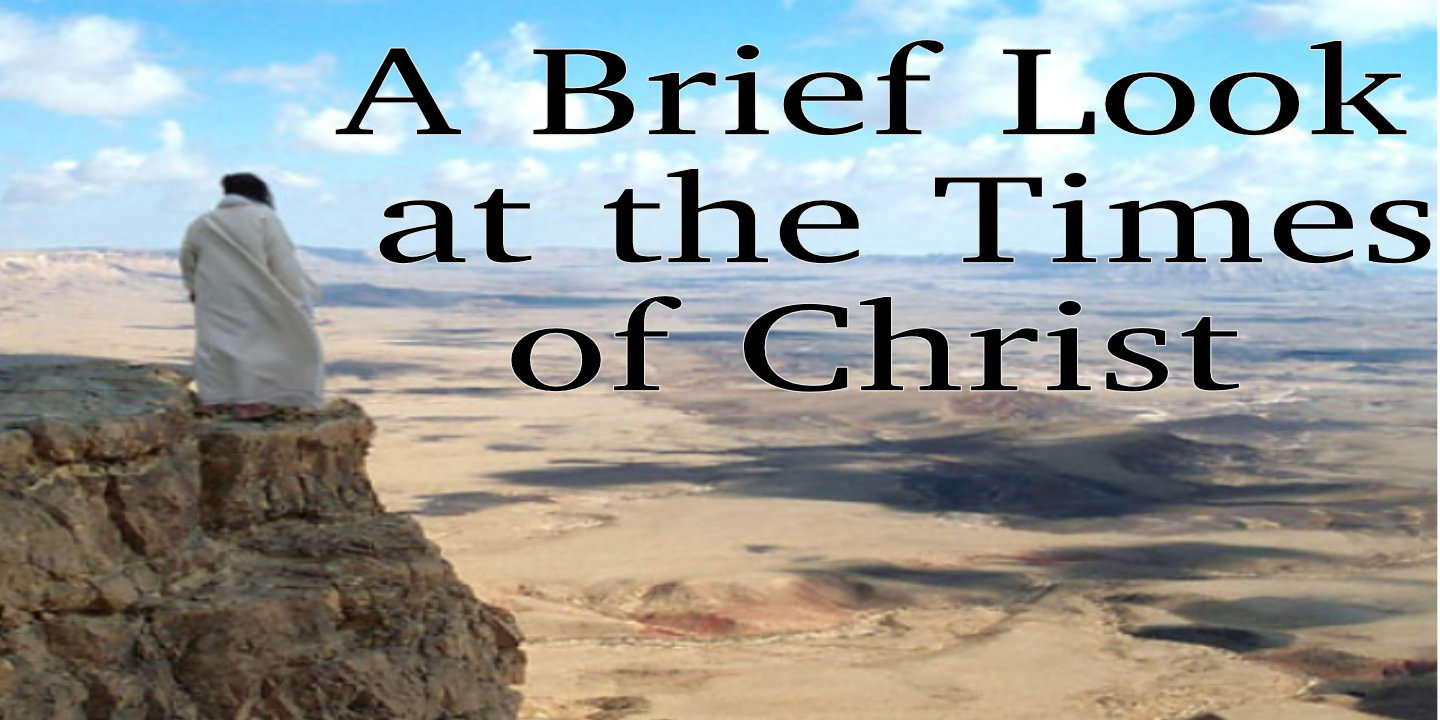
During the time of Christ’s earthly ministry and the Second Temple-Period in Jerusalem, there were various political and ecclesiastical Jewish parties struggling for control of Israel’s National Life (Maccabean Revolt). At the same time, they were anxious to faithfully preserve their identity. In the past, God had judged Israel for their sin and disobedience; now, during times of intensified conflict and uncertainty about their national existence, they wanted to be faithful so that the promised Kingdom would come.
The Main Players On Center Stage at That Time Were…
(see…Flavius Josephus in Antiquities of the Jews)
The Essenes: They would have nothing more to do with the Temple in Jerusalem. The Essenes withdrew from the Temple because they considered it compromised and polluted, and so they withdrew. They were content to be unruffled and just wait for the Kingdom to come, praying that God would usher it in (Remember Masada).
The Pharisees: The Pharisees progressively set up new restrictions that needed to be achieved, restricting markers of the “Law, setting up a higher fence and especially the ceremonial laws, food laws, and Sabbath laws” in order to say, “We have got to show ourselves to be holy, separated and dedicated so that we can keep Israel from falling into a religious swamp with the pagan Gentiles.”
The Zealots: The Zealots strategy was one of violent revolt; to take up a sword, fight against the pagan intruders. Some of Christ’s Disciples were identified as “Zealots” (Lk. 6:15), and not a few of the Pharisees.
The Sadducees: The Sadducees were compromisers; their policy was, “Go along in order to get along.” The best thing to do, they said, was “just compromise with the ruling powers. As we make concessions, then maybe we can carve out a little bit of space in which we can be faithful as Jews.” The “give-and-take” idea must be seen in the context of anxiousness for the coming of the prophesied Kingdom, a last-ditch attempt of Israel to maintain their identity.
The Romans: When Rome regained power over Jerusalem, this resulted in a festering hatred and anger toward their pagan occupiers, but it also intensified their Messianic longing and fervent yearning that the Kingdom of God would come! They were ready for God to act and usher in His Kingdom – they only disagreed on how and when that would happen. They continued to question, “When would the Messiah come?”
Conclusion
In recent years, there is a renewal of the Kingdom expectation among the Jews. It is exciting to read recent reports of increasing number of Jews receiving Christ as their Messiah. In a future day, following the Rapture of the Church and the Great Tribulation (I Thess. 4:16-18; Mt. 24:21), then, “all Israel shall be saved,” God’s covenant with the Jews will be fulfilled, and the promised Kingdom will come … “As it is written, there shall come out of Sion the Deliverer, and shall turn away ungodliness from Jacob: For this is My covenant unto them, when I shall take away their sins.” “O the depth of the riches both of the wisdom and knowledge of God! How unsearchable are His judgments, and His ways past finding out” (Rom. 11:26-33)!
I fear that a great deal of our understanding and appreciation for Scripture truth is lost unless we have a knowledge of the social, political, cultural and spiritual climate with reference to the times of Christ’s life and ministry. I believe that Christians have a great need to be familiar with the Jewish culture and history when reading, studying and interpreting the Bible. Remember that the early Church was modeled after in the times of the Jewish Synagogue.
